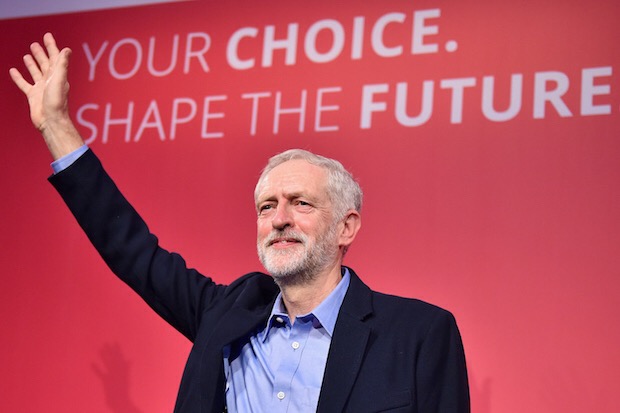Labour’s famously vocal moderates have been awfully quiet today, given one of their number – Jamie Reed – has just been replaced by a Tory in a hugely embarrassing by-election defeat for the party. The centrist wing of the party, now almost exclusively a backbench club, has taken a vow of silence because it doesn’t want to be accused of salivating at the loss of a seat or of conforming to the ‘Bitterite’ stereotype of MPs undermining the Labour brand. This is particularly important given some Corbynites are still blaming last summer’s attempted coup by the Parliamentary Labour Party for any catastrophe it encounters, including losing Copeland.
That coup didn’t remove Corbyn. But what it did do was remove the ability of the moderates to speak out with much authority. They blew the leadership contest that followed Jeremy Corbyn by putting up an unsuitable and unappealing candidate and – as they did in 2015 – misreading where the Labour membership was. Though there were jokes and serious threats last autumn about perpetual leadership contests, the moderates now know that any threat to the Labour leader must come from another wing of the party, because they have lost their ability to talk to the party membership.
There have always been those, including Reed, who refused to serve on Corbyn’s frontbench from the very beginning. They were very quickly ignored as the usual suspects who enjoyed criticising Corbyn, while their frontbench colleagues who resigned last summer enjoyed a period of being taken vaguely seriously by the membership. So now the onus is on the next wave of apparently loyal frontbenchers who are agonising in quite similar tones to those who served before them about whether and when they should jump.
The moderates have unquestionably made jumping much harder for the next wave of frontbenchers though. The failed coup last summer only strengthened the betrayal narrative in the Labour membership, which in turn only strengthened the membership’s loyalty to Corbyn.
Now the question is whether the Labour membership will ever change its mind about its leader, or whether it is content to see the party lose an election or at least sufficiently persuaded that Corbynism – even if it ends up coming from one of the younger generation of loyal frontbenchers like Rebecca Long-Bailey – is in fact the way to win an election. Labour MPs who think Copeland shows that Corbynism will not only fail to win an election but also lose the party more than a hundred seats, many of which it has held for years, have to work out how to persuade the membership round to their way of thinking. Currently theories about the disloyal PLP, hostile media, Tony Blair, Storm Doris and the inconvenience of jobs in the nuclear industry are so strong that they seem to have the same currency for Labour members as Creationist theories about the Devil hiding dinosaur fossils in the rocks to make people disbelieve literal readings of Genesis. As anyone who has argued with someone clutching an Evidence Bible that ‘disproves’ evolution will know, what appears obvious is not necessarily persuasive.
The risk of the moderates staying quiet is that these theories will get a greater airing with no challenge. But given the moderates still haven’t worked out how to challenge the Corbynites effectively, perhaps that is for the best. The problem is that unlike an argument about the beginning of the world, the argument in the Labour Party is now about whether it is facing its End of Times. And it doesn’t have millions of years left in which to deal with that.







Comments